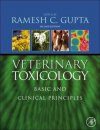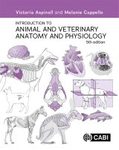About this book
Veterinary Toxicology is a unique single reference that teaches the basic principles of veterinary toxicology to any student at the DVM, MS or PhD level and will continue to serve as a clinical reference for practicing veterinary toxicologists, poison control centers, marine biologists, environmentalists, and animal scientists. While most comparable texts are primarily directed toward the field of human toxicology, this is the one text needed to thoroughly prepare future veterinarians on the newest approaches for diagnosing poisoning cases in all animals from chemicals and plants of a diverse nature as a result of inadvertent, accidental, or malicious intents. Many chapters are provided on topics not covered in any previous books such as target organ toxicity, radiation and radioactive materials, FDA regulatory issues, and ethics in veterinary toxicology.
This title includes: new chapters covering important and timely topics such as melamine and cyanuric acid, toxicogenomics, toxic gases and veterinary medical geology; and, provides expanded look at international topics, such as epidemiology of animal poisonings, regulatory guidelines and poisonous plants in Europe. This is a heavily contributed book with chapters written by qualified and well-experienced authorities across all areas of veterinary toxicology. Problem solving strategies are offered for treatment as well as in-depth knowledge of the basic mechanisms of veterinary toxicology.
Contents
Part 1 General
Part 2 Organ Toxicity
Part 3 Nanoparticles, Radiation, and Carcinogenesis
Part 4 Drugs of Use and Abuse
Part 5 Metals and Micronutrients
Part 6 Insecticides and Molluscicides
Part 7 Herbicides and Fungicides
Part 8 Rodenticides and Avicides
Part 9 Gases, Solvents and Other Industrial Toxicants
Part 10 Environmental Toxicology
Part 11 Bacterial and Cyanobacterial Toxins
Part 12 Poisonous and Venomous Organisms
Part 13 Estrogenic Toxicants
Part 14 Poisonous Plants
Part 15 Mycotoxins
Part 16 Feed and Water Contaminants
Part 17 Diagnostic Toxicology
Part 18 Prevention and Treatment
Customer Reviews
Biography
Ramesh C. Gupta, DVM (BVSc), MVSc, PhD, DABT, Professor & Head of Toxicology Department at Murray State University, has research experience of more than 30 years. He has authored/co-authored more than 200 publications. Presently, Dr. Gupta is widely regarded as an authority in the research area of Anticholinesterases (Organophosphates & Carbamates).























![Épidémiologie Appliquée à la Lutte Collective Contre les Maladies Animales Transmissibles Majeures [Epidemiology Applied to the Collective Fight Against Major Transmissible Animal Diseases]](http://mediacdn.nhbs.com/jackets/jackets_resizer_medium/24/248788.jpg?height=150&width=105)











